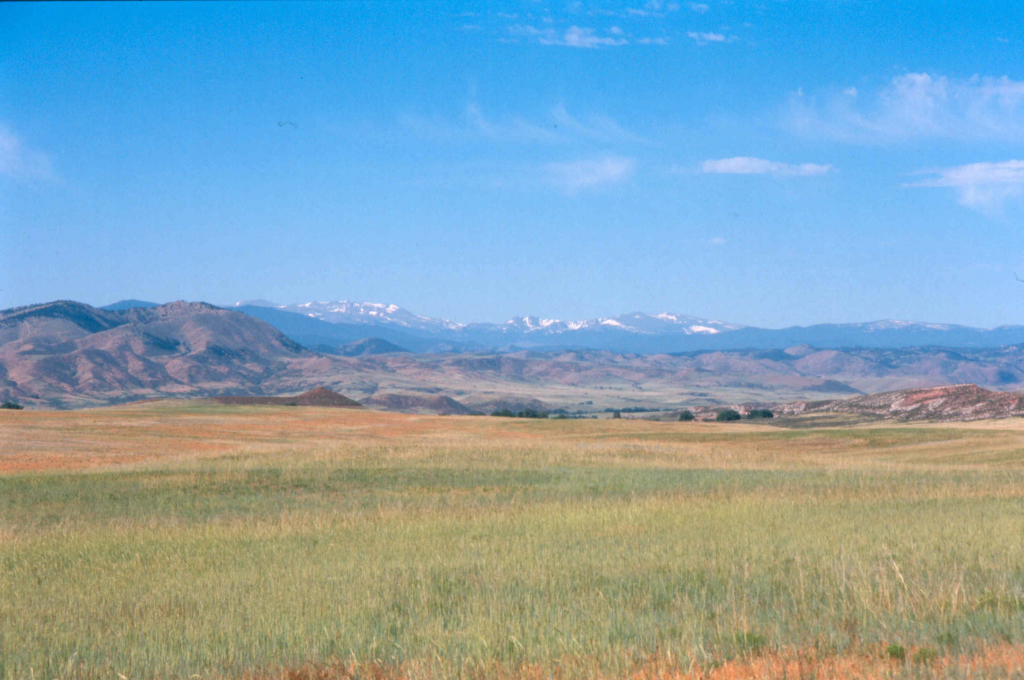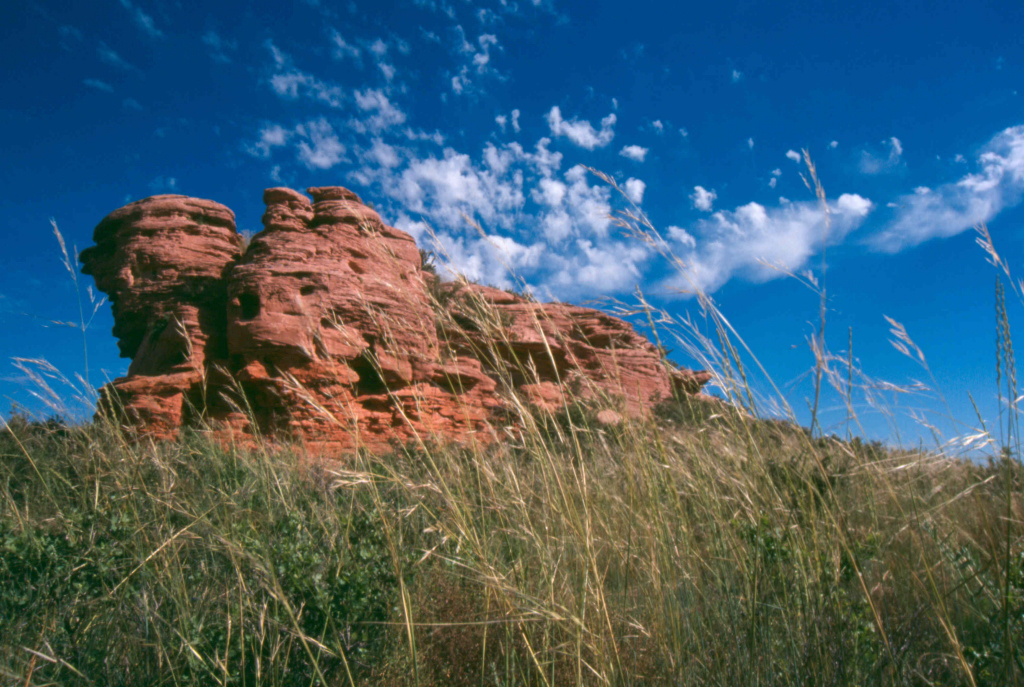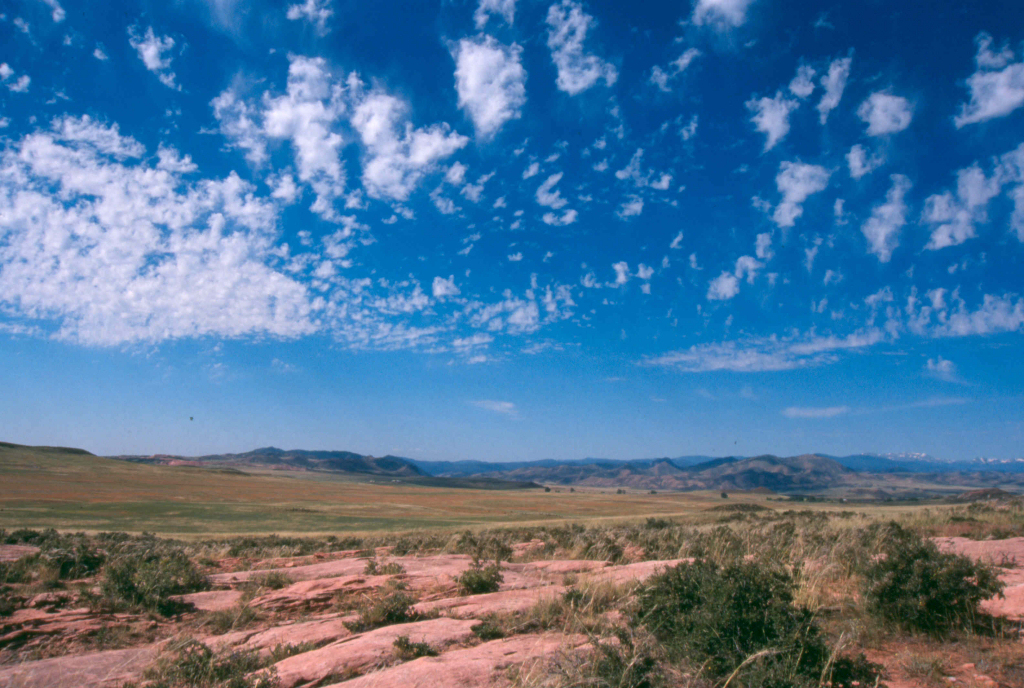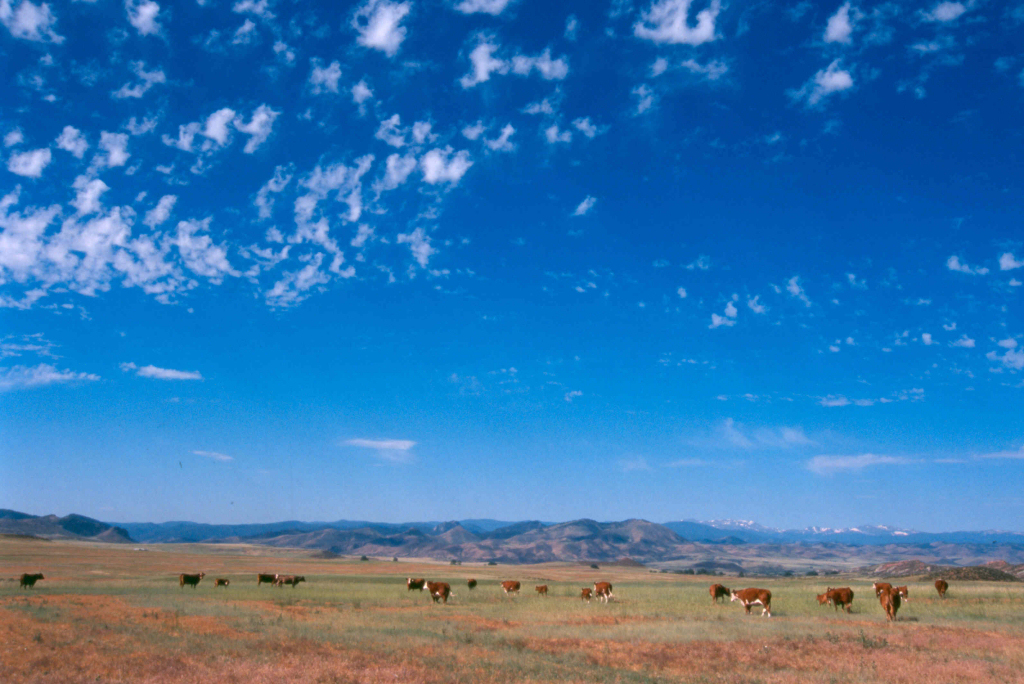Roberts Ranch Conservation Easement
This conservation easement is not open to the public. It is a central feature of the Livermore Valley and is visible from US Highway 287 between Fort Collins and the Wyoming state line to the north. The Roberts family has a long history in this valley, beginning with the original homestead in 1874. Members of the family are continuing their ranching legacy into the 21st century with this sustainable cow-calf operation.
Also protected in this easement are areas of historical interest such as tepee rings, a portion of the Overland Trail and at least one buffalo jump. It is also significant to wildlife because it is situated near over 14, 000 acres of state and locally protected lands thus increasing the area available to wildlife for migration, resting and feeding.
| Type of Acquisition | #Acres | Property Value | Partnerships Bargain Sales Donations | Date Acquired | Public Access |
|---|---|---|---|---|---|
| Conservation Easement Phase 1 | *4,960 | $ 3,000,000 | Larimer Co - $ 200,000 Fort Collins - $ 1,800,000 GOCO** - $ 889,500 TNC*** - $ 1,500 Landowner - $ 109,000 | 2004 | No |
* Since this Phase I purchase of the Roberts Ranch, which Larimer County participated in, the remaining 11,971 acres of the Roberts Ranch has been put under conservation easement. This Phase II protection was one part of the larger Laramie Foothills Mountains to Plains Project, a partnership effort that received $11.6 million from Great Outdoors Colorado to protect over 55,000 acres in this area.
** Great Outdoors Colorado
*** The Nature Conservancy
When only the development rights of a property are purchased, as in the case of a conservation easement, any future development of that land is limited. The landowner continues to manage the property, and the land remains on the tax rolls. Land with a conservation easement is not generally open to the public because it is still in private ownership.
* This conservation easement is monitored by Larimer County Open Lands.
Future Vision
To ensure that these properties remain in agricultural uses in perpetuity.
Click a photo to enlarge.




